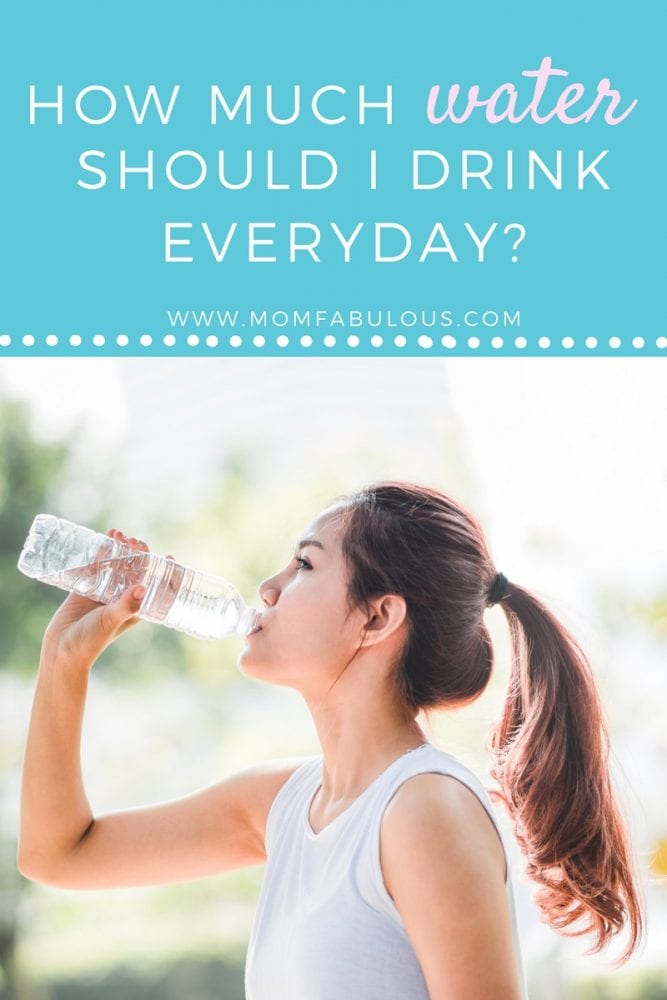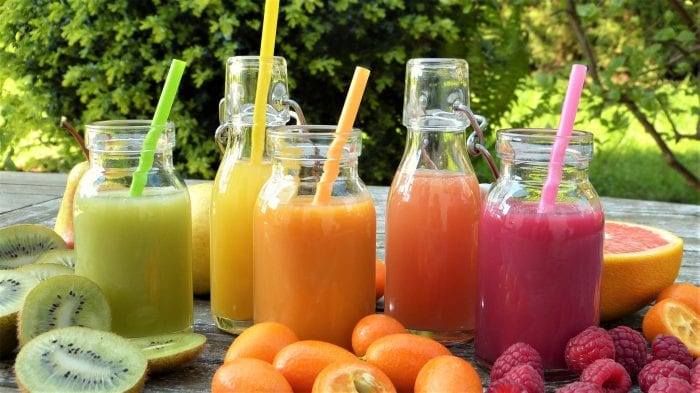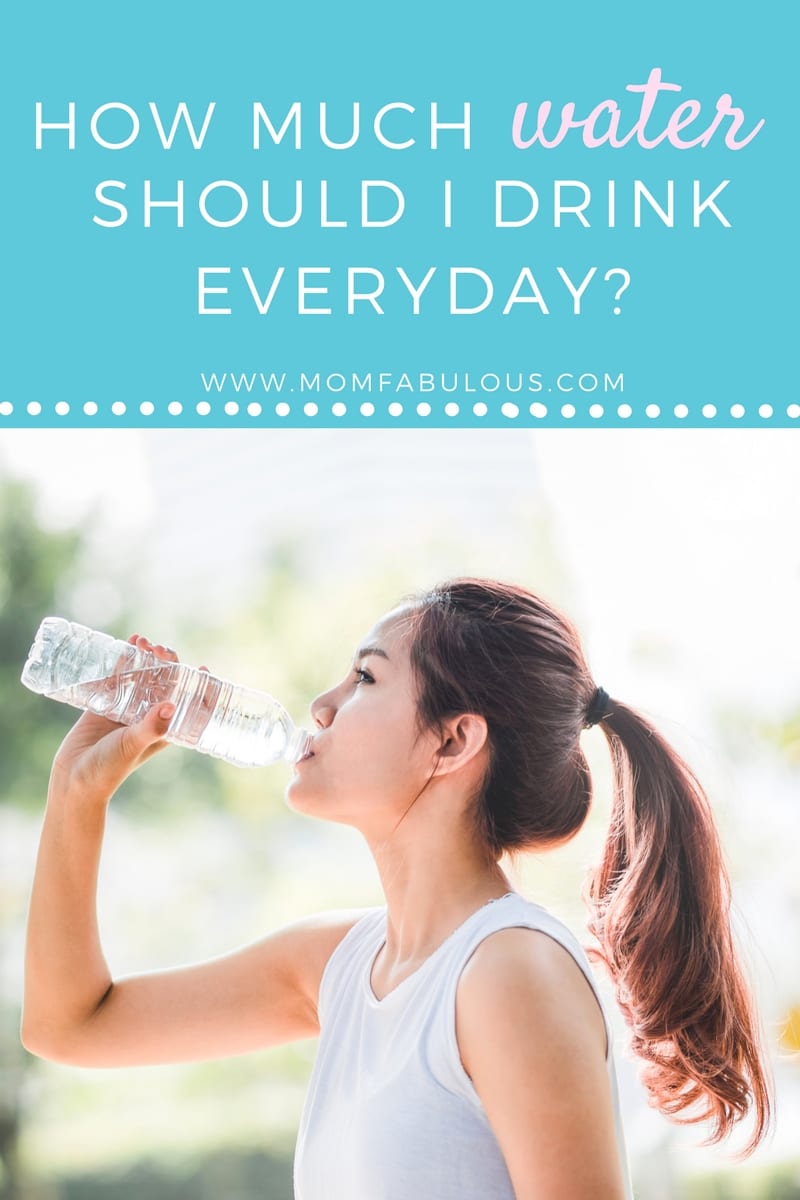
How much water should you consume daily?
You’ve heard this question before. So what’s the “right” answer?
8 cups? 1 gallon? As much water as it takes to satisfy your thirst?
Why your body needs water
Water is essential to your body’s functioning and supplies 60% of your bodyweight. (Don’t do the math…I know you were trying to calculate that in your head!) You literally cannot survive without water. In fact, your would die after only a few days of dehydration. (Note to self: make sure I have enough water in my emergency kit…)
But let’s not focus on the negative. Water provides some amazing benefits:
- It regulates your body temperature.
- It helps you expel waste (through urination, bowel movements, and sweating).
- It cushions and lubricates your joints for increased mobility.
- It protects your spine and other sensitive tissues.
- It flushes toxins out of your organs.
- It carries nutrients to cells throughout your body.
- It aids in digestion.
- It nourishes your skin (the largest organ of your body).
- It aids in lubrication during sexual arousal.
How much water do you need daily?
That’s the question of the day!
Answer #1: Here are the recommendations from the Institute of Medicine (found here on pages 147-153):
| Age | Water Intake Per Day |
| Adult women | 9 cups, 2.7 L, 92 oz |
| Pregnant women | 10 cups, 3 L, 101 oz |
| Women who breastfeed | 13 cups, 3.8 L, 128 oz |
Answer #2: Another recommendation is to drink half of your bodyweight in ounces.
your bodyweight in pounds 2 = # of ounces to drink daily
For example, if you weigh 140lbs, you should drink at least 70oz of water daily.
140lbs 2 = 70 oz water
My personal recommendation: Drink half of your bodyweight in ounces, and gain the additional fluids through food and other drinks. Dietitians recommend gaining 20% of your daily fluids from food.
Using the example above, a 140 lb adult woman would drink 70oz of water per day, and roughly 20oz of water would come from foods, for a total of 90 oz of water. (20% of the recommended 92oz of water per day is 18 oz.)
70 oz water + 20 oz of water from foods = 90 oz total water intake

Sources of water…other than a glass of water
Thankfully water comes in many forms besides the standard clear liquid. Foods like watermelon, cucumbers, berries, tomatoes, lettuce (especially spinach), citrus fruits, and soup/broth all contain large amounts of water. Even jello and popsicles count toward your daily fluid intake!
Naturally, all drinks have water in them. I recommend milk, 100% fruit juice, and tea. Need a bit more to actually slurp down water? Add fresh fruit either directly into you glass, or freeze fresh fruit with water in an ice cube tray.
Although soda and sugary drinks contain water, the extra ingredients tend to counteract the water; I don’t suggest that you count these toward your daily water intake.
Curious about the water content in other foods? Check out the chart below!
Water Content of Selected Foods (Table 4-16 on page 158)
| Food | Water (% by weight) |
| Lettuce, iceberg | 96 |
| Squash, cooked | 94 |
| Pickle | 92 |
| Cantaloupe, raw | 90 |
| Broccoli, cooked | 89 |
| Peach, raw | 89 |
| Milk, 2% | 89 |
| Broccoli, cooked | 89 |
| Peach, raw | 89 |
| Carrots, raw | 88 |
| Orange, raw | 87 |
| Apple, raw | 86 |
| Pineapple, raw | 86 |
| Apricot, raw | 86 |
| Pear, raw | 84 |
| Grapes, raw | 81 |
| Sweet potato, boiled | 80 |
| Banana, raw | 75 |
| Potato, baked | 75 |
| Ham, cooked | 70 |
| Corn, cooked | 70 |
| Macaroni/spaghetti, cooked | 66 |
| Chicken, roasted | 64 |
| Turkey, roasted | 62 |
| Steak tenderloin, cooked | 50 |
| Bread, whole wheat | 38 |
| Cheddar cheese | 37 |
| Bread, white | 36 |
| Walnuts | 4 |
| Chocolate chip cookies | 4 |
| Crackers, saltines | 4 |
| Corn flakes cereal | 3 |
| Peanuts, dry roasted | 2 |
Other factors that impact water intake
Activity level: Sweating actively depletes your body of water. Try drinking 1-2 glasses of water before you exercise. If you’re doing intense activities that last for more than 1 hour, consider drinking a sports drink to help replenish water and electrolytes lost from your sweat.
Environment: Remember how sweating is a form of dehydrating your body? High temperatures, humid weather, and high altitudes should signal you to drink extra water.
Pregnancy/breast feeding: As shown in the chart above, growing and feeding a baby are hard work for a Mama’s body! Gulp down some extra fluids to keep you and your baby healthy and hydrated.
Diet: Do you gravitate toward salty foods? Sodium-rich foods cause your body to retain fluid and make you thirstier. Balance out your salty food diet by either reducing your sodium intake or drinking an extra glass of water.
How do I know if my body is well hydrated?
You’re taking in enough fluids if:
- Your urine is light yellow or clear
- You rarely get thirsty
- Your skin, mouth and lips are hydrated (not dry)
Ways to track your water intake
It’s probably not reasonable to keep track of how many glasses of water you’ve drank today…unless you’re extra good with numbers! Here are a few popular methods to keep up with your water intake:
- Drink water from a water bottle with a tracker on it. I personally use this one by Thermos that has a rotating dial on the neck. But I’ve had my eye on this one as well (because those bracelet bands are so pretty and colorful!).
- Buy a large water bottle (my favorite is this 32 oz Contigo) and challenge yourself to drink 3 full bottles each day (one in the morning, one in the afternoon, and one in the evening).
- Log your glasses in your daily planner/calendar using fun stickers. Not into stickers? Use tally marks to keep up with how many glasses you’ve guzzled so far.
- There’s an app for that! Heathline wrote a blog about the 10 best hydration apps in 2017. My husband uses Water Drink Reminder, which frequently jingles a sound like water filling up a glass to remind my husband to take a sip throughout the day.
*Note: Everyone’s bodies are different. Depending on your overall health, prescriptions, and/or medical conditions, please consult your physician regarding how much water is the right amount for your body.
Need more encouragement to help you drink more water? These resources may be helpful!
